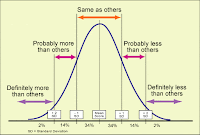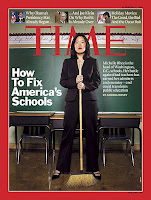



 -l
-l n
n , s
, s l
l
 n
n , s
, s -lô
-lô
 )
)


 She gave it her best.
She gave it her best. 
It was one of my student's birthday this Friday, but instead of hurrying off with her friends to begin celebrations, she said she had something for me. “Be with you in a sec--I have to get X. his homework.” And A. patiently waited for me to do so.
Five minutes later, her face beaming, she reaches into her purse saying, “I have no idea how this got into my coat,” pulls out a gigantical chocolate bar and hands it to me. Now earlier in the year the kids found out I don’t like cheese, and A. announced she didn’t like chocolate. “OK, then, whenever any chocolate finds its way into your hands, I will be happy to relieve you of the burden,” I had joked with her, pleased to find someone with tastebuds as strange as mine.
“A, it’s YOUR birthday, not mine! What is this all about?”
“It’s not what it seems,” says A. “There’s something inside.”
“Like a golden ticket? Are you Willy Wonka?”
“No. You’ll see.”
I ask, “Should I open it now?” and even as I ask, I can see she wants me to. So I slide the wrapper off, and carefully wrapped around the foil is a handwritten note. I open it--it’s in pink and purple pen and dated March, 1773....
March 1773?
I have to explain. The day before we had learned about the Boston Tea Party and I had told them about a colonist for whom the temptation was just too much--while the other Sons of Liberty swept every trace of tea into the harbor, he surreptitiously stuffed the lining of his coat with handfuls of the boycotted stuff. He was discovered by others and shall we just say that they ruined more than just his coat. To help the kids understand, I’d said, “Think about how hard it would be to throw Reese’s Peanut Butter Cups overboard, knowing it would be ages before you could taste one again. I suppose I can understand the would-be tea thief...”
And now that you know the back story, here is a direct transcript of her note:
“Dear Ms. M, 1773
This is Ashley, the top reporter in the press. It is 1773 the boycott is going great. You should be happy to know that we decided to name it the California Chocolate Party.
And we ( the sons and daughters of liberty) decided that we should go to the boat and eat all the chocolate in the boat. You know that I dislike chocolate didn’t eat any but still attended because I needed everything to be in order.
Well, as we were cleaning ourselves up I was going to check on them but I noticed that there is something quite large in my pocket. I look and its chocolate.
So I have nothing to do with it except give it to you.
Have a lovely day and if any extra duties (haha you read duties*) just tell me and I will assist to them. Happy thought and love, Ashley W.”
Thus ended the fifth week of school--and this is even better than a raise, George Clooney, and chocolate combined because I ACTUALLY GOT CHOCOLATE!!!
*Remember that I teach 8th grade so I make gross jokes before they can. Whenever we read about customs duties, I laughed and said, “Doodies!” and the class would giggle and snort. Mature? Not at all. Spoonful of sugar? Yes, please, Mary Poppins.